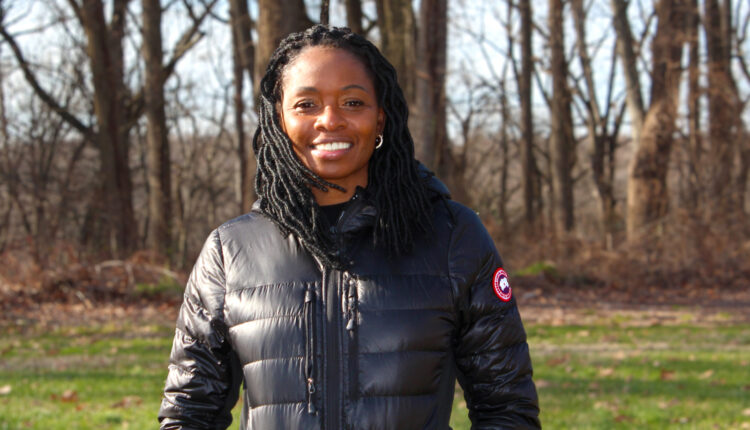Usted está aquí
The DC Line: Surviving trauma: Northwest resident shares her path from foster child to world-champion boxer in hopes of helping others go the distance

It took years for Lisa Cohen, a boxing champion and motivational speaker, to recover from the trauma of her years in the foster care system. Today, the DC resident advocates on behalf of children in foster care. (Photo by Sierra Lewter/Urban Health Media Project)
Growing up in the District’s foster care system, Lisa Cohen bounced among 13 different families over 19 years.
Now 52, Cohen — a motivational speaker and former boxing champion who lives in Northwest DC — never had a birthday party as a child and has almost no family photos. She and her four brothers were placed in foster care when their mother was deemed abusive and unfit to care for them.
Through all the changes, there was only one thing that made Cohen — the youngest of the five siblings — feel she had any kind of permanence: She was able to live with two of her brothers most of the time when she was in the custody of child welfare services. In the first foster home, all five were together. But her sense of “home” evaporated later when her two youngest brothers were taken away and placed in different homes, as well as after the other two ran away to live with their birth mother.
“It got hard when Jeff turned 13, and I turned 12, because he’s all I had,” she recalled about a turning point in her childhood. “We had traveled all around, and we were very, very tight. … It was the sixth move — he was moved out and they separated us, and that was when I really had to switch on the coping mechanism.”
Cohen said she became depressed and angry, particularly when she had to move out of a home where she felt welcomed and loved. Such decisions — made without her input — seemed unnecessary and cruel, she said.
One of Cohen’s coping mechanisms was to participate in the Junior Reserve Officers’ Training Corps and as many other extracurricular activities as she could — whether she was interested in them or not. “The way I dealt with it, when I was able to join things in school, I’d join the band, and ran track, or softball,“ she said. “I hated track, but I ran track because I just didn’t want to go home.”
With each move, she learned not “to get attached to things.”
“I understand that any and every thing that you have is short term,” she said. “Only thing you’d want to keep is people.”
Yet growing up she didn’t want to make friends: “I’d make friends and move and you didn’t see them again.”
Foster care can be tough on children
Cohen was born at Freedmen’s Hospital (now Howard University Hospital) and then placed in St. Ann’s Infant and Maternity Home (now known as St. Ann’s Center for Children, Youth and Families) in Hyattsville, Maryland. At the time, her mother was being treated at St. Elizabeths Hospital, a psychiatric facility in Southeast, and her brothers lived at Junior Village, a city-run orphanage in Southwest that was shut down in 1973. Many children lived there after being removed from their families because of the conditions of their households, and Cohen herself spent about a year there before moving to her first foster home.


